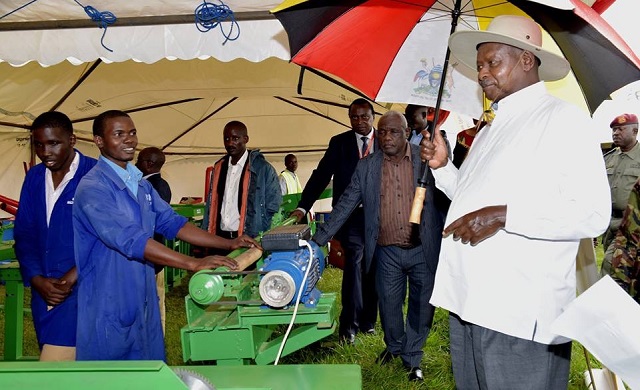
To achieve sustainable development, countries have to increase the share of manufacturing
COMMENT | LI YONG | Since 2000, Africa has recorded impressive rates of economic growth, owing largely to development assistance and a prolonged commodity boom. While the continent shows great diversity in the socioeconomic trajectories, growth rates have generally masked an underlying lack of structural transformation.
Many African countries have yet to undergo the kind of transformation that is necessary for socially inclusive and environmentally sustainable development over the long term: namely, industrialisation. Wherever industrialisation has occurred, it has reliably improved economic diversification and helped to nurture, strengthen, and uphold the conditions for competitive growth and development.
In recent decades, some developing countries – mainly in Asia – have managed to industrialise. But, despite repeated attempts, African countries have not. In 2014, the Asia and Pacific region’s share of value added in global manufacturing was 44.6%, whereas Africa’s was just 1.6%. With South Africa as its only industrialised country, Sub-Saharan Africa is the least industrialised region in the world.
For African countries to achieve sustainable development, they will have to increase substantially the share of industry – especially manufacturing – in their national investment, output, and trade. And, to their credit, most African countries already recognise that such a transformation is necessary to address a wide range of interconnected challenges that they are now confronting.
One such challenge is population growth. More than half of the continent’s 1.2 billion people are under the age of 19, and almost one in five are between the ages of 15 and 24. Each year, 12 million new workers join the labour force, and they will need the tools and skills to ensure their future livelihoods. Industrialisation is the key to helping Africa’s fast-growing population realise a demographic dividend.
A related challenge is migration. Many of Africa’s most ambitious and entrepreneurially minded young people are joining others in migrating north. But no country, especially in Africa, can afford to lose so much talent and potential. Industrialisation alone cannot resolve the migration crisis, but it can address one root cause, by creating jobs in the countries of origin.
A third challenge is climate change, which weighs heavily on countries where agriculture is still the primary sector for employment. To confront the threat, Africa will need to develop and adopt green technologies, while channeling more investment into resource efficiency and clean energy. With the right investments, African countries can reduce the cost of delivering power to rural areas, and contribute to global efforts to reduce emissions and mitigate the effects of climate change.
In short, Africa must industrialise, and it must do so in a socially inclusive and environmentally sustainable manner. Given that most previous efforts at sustainable development in Africa have failed, there is a clear need for a new approach: a broad-based, country-owned process that taps financial and non-financial resources, promotes regional integration, and fosters cooperation among Africa’s development partners.
As it happens, the United Nations General Assembly has declared 2016-2025 to be the Third Industrial Development Decade for Africa. During IDDA III, the United Nations Industrial Development Organisation, which I lead, will spearhead the new approach to sustainable development sketched above. UNIDO has put its full support behind partnerships for mobilising resources, and is offering a tested model for African countries to follow: the Programme for Country Partnership (PCP).
UNIDO’s PCP provides countries with technical assistance, policy advice, and investments to help them design and implement industrialisation strategies. The program was launched in 2014, and is already being successfully implemented in two African countries – Ethiopia and Senegal – and in Peru.
The PCP provides a multi-stakeholder partnership model that can be adapted to each country’s national development agenda. It is designed to work in synergy with governments and their partners’ ongoing development efforts, while funneling additional funds and investments toward sectors that have high growth potential and are important to a particular government’s industrial-development agenda. Priority sectors are typically chosen for their job-creation, investment, and export potential, and for their access to necessary raw materials.
The PCP approach is designed to maximise the impact of all partner programs and projects that are relevant to industrial development. To that end, strategic partnerships with financial institutions and the business sector are particularly important. With these in place, African countries can marshal additional resources for infrastructure, innovation, expertise, and new technologies.
UNIDO’s goal is to make the PCP model the mainstream approach for all African countries. We stand ready to support Africa on its path to inclusive and sustainable industrial development – during IDDA III and beyond.
*****
Li Yong is Director General of the United Nations Industrial Development Organization.
Copyright: Project Syndicate, 2017.
 The Independent Uganda: You get the Truth we Pay the Price
The Independent Uganda: You get the Truth we Pay the Price


